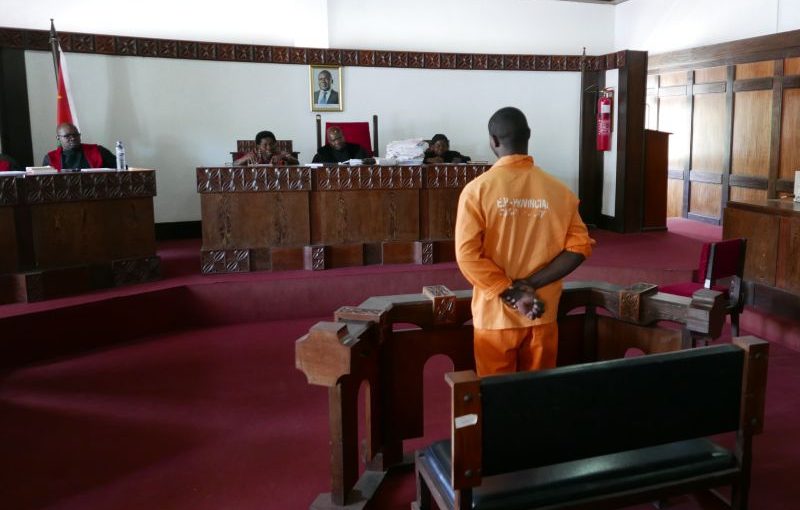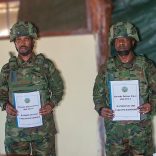Mozambique: Drugs valued at almost 50 million meticais seized in the first half of 2025
Mozambique: ‘Case not against Muslims’ – judge to accused in Cabo Delgado trial

Photo: Lusa
The judge presiding over a trial of some 200 people accused of being involved in armed attacks in northern Mozambique has told the court that the case is not aimed against Muslims.
“We are not judging Muslims, only that the acts began there [in mosques],” the judge, Geraldo Patrício, said in Monday’s session. “There are people who have rebelled against the state from the mosques.”
He made the comments after some Muslim defendants asserted that they never prayed, in response to questions from the judge, prompting doubts about whether they were trying to hide their religion.
The first six defendants heard on Monday denied any links with an armed group that a year ago attacked the village of Mocímboa da Praia, setting in train a wave of violence in which almost 100 people have died – civilians and members of the military – in isolated settlements in Cabo Delgado province, in the north of Mozambique.
Asked by the panel of judges and by prosecutors about Al-Shebab, the name by which the group has become known in the region – despite not having any known links to the Somalia-based organisation of the same name – all denied any links with it.
Among defendants who spoke on Monday, one claimed to have been caught by locals days after the attack in Mocímboa da Praia, just because he was from another village.
Two women are accused of cooking for the group, which they have also denied.
Another was silent in the face of questioning and two others, one of whom an alleged arms smuggler, claimed to be know nothing about almost everything he was questioned about.
The defendants had difficulty understanding questions put to them in Portuguese and in expressing themselves in that language, and the session proceeded with the use of translators of Kimuani and Macua, the two languages spoken fluently by the accused.
The presiding judge contested some of their answers, noting contradictions between these and evidence and witness statements gathered, as well as information in the public domain.
Patrício explained that witnesses would be called to testify later on in the trial.
The court expects to hear an average of 10 people in Tuesday’s session and the following sessions until all defendants have been heard.
Some of the defendants are at liberty, but most are being held in three Pemba prisons from which they will be brought to the court premises for the hearings.
Each defendant is questioned by the panel of judges, prosecutors and defence lawyers; most of the accused are being represented by state attorneys.
Five crimes are involved in the case: felony murder, possession of prohibited weapons, association against the organisation of the state, instigation or provocation to collective disobedience, and disturbance of public order and tranquillity.
The attacks in northern Mozambique were triggered a year ago by groups recruited in mosques that called for the imposition of Islamic law.
Analysts are divided among those who see links to organised crime and terrorism and those who cite other reasons, such as popular outrage against poverty, long-established territorial disputes between ethnic groups, or even political manipulation aimed at destabilising Mozambique at a time when oil companies are investing in natural gas projects in Cabo Delgado province.












Leave a Reply
Be the First to Comment!
You must be logged in to post a comment.
You must be logged in to post a comment.